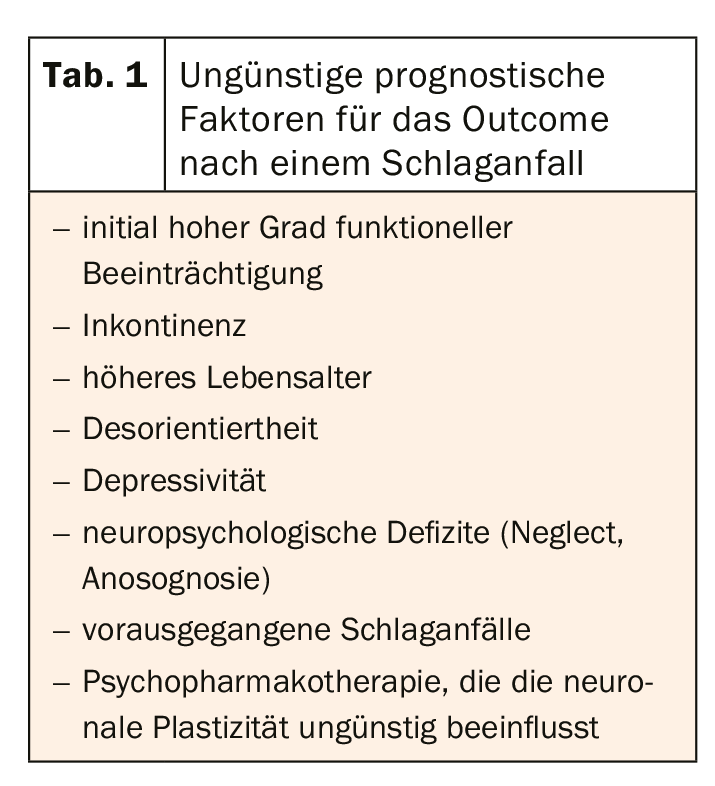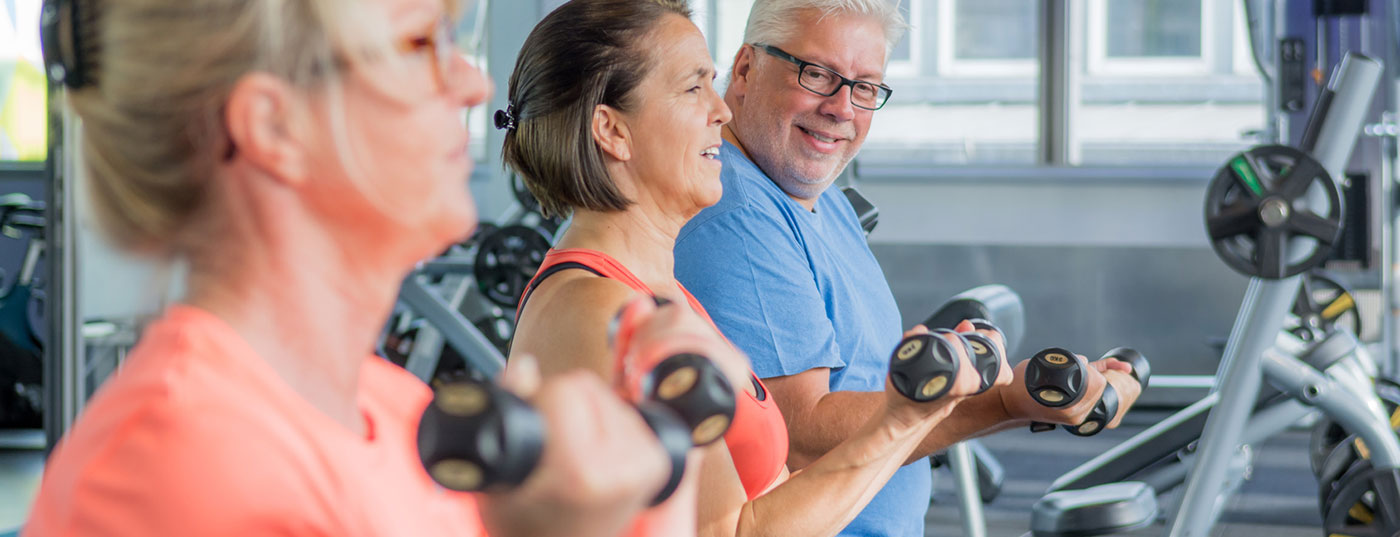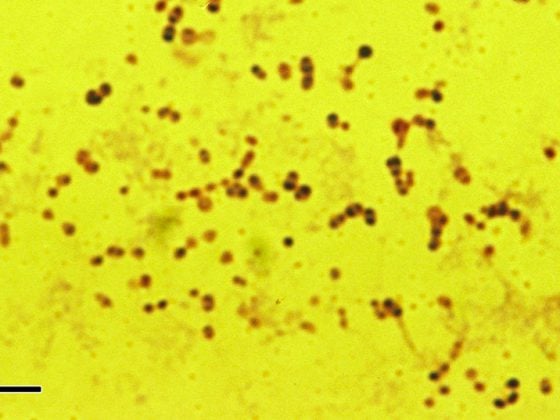Stroke treatment has improved in recent years to the point where survival rates are increasing. However, many patients do not fully recover functionally. Americans focus on endurance training in rehabilitation. However, a gentler start may be more effective, according to recent data.
Around 10 million people worldwide suffer a stroke every year. In Switzerland, the figures are around 16,000 affected persons per year. Stroke is the most common cause of disability in adulthood. In most cases, the sudden functional disorder is triggered by a circulatory disturbance, for example caused by a blood clot. Bleeding is present in about 15 percent of cases. Survival rates have increased significantly in recent years thanks to improved treatment strategies. However, about two thirds of the affected persons have to struggle with functional limitations after the event (tab. 1) . Since pharmacological interventions are not available, therapy management consists of physical and occupational therapy, speech therapy, and neuropsychological measures.

According to recommendations of the “American Heart Association/American Stroke Association”, stroke patients from the subacute phase onwards should perform endurance training at 55-80% of the maximum heart rate for 20-60 minutes 3-5× a week. The basis is the assumption that treadmill training improves speed and endurance when walking and climbing stairs and prevents increasing deconditioning. In addition, the neuroplasticity of the brain can be promoted and thus the outcome can be improved. However, the data situation on this is contradictory. While some studies show an improvement in maximum walking speed or an increase in the “Barthel Index”, a score to objectify disabilities in basic daily functions, results in meta-analyses regarding physical training are inconsistent. However, comparison of the studies is difficult because they show differences in terms of the type, intensity, and timing of the start of training.
Less is sometimes more
Therefore, a German study investigated the safety and effectiveness of early locomotion therapy with a treadmill. 200 stroke patients received aerobic treadmill training, or participated in relaxation sessions, in a 1:1 ratio in addition to standard rehabilitation measures. Each group completed the respective training five times a week, 25 minutes each, for a total of four weeks. The primary outcome was the patients’ maximum walking speed (in m/s over a 10-m distance) and activity of daily living (Barthel Index 0-100, where a higher value means less disability) – measured three months after stroke.
It was found that treadmill training did not lead to any significant improvement in the parameters. However, 1.8 times more serious events such as cardiovascular events including recurrent stroke, readmission to an acute hospital, and death (22/105 vs. 9/95 patients in the control group) and 2.5 times more hospital admissions (14/105 vs. 5/95) were recorded than in the control group. Accordingly, the results suggest that aerobic exercise should not be forced in the subacute phase after stroke in moderately to severely affected patients.
Source: Annual Meeting of the Swiss Cerebrovascular Society
Further reading:
- Nave AH, Rackoll T, Grittner U, et al: Physical Fitness Training in Patients with Subacute Stroke (PHYS-STROKE): multicentre, randomised controlled, endpoint blinded trial. BMJ 2019; 366: l5101
InFo NEUROLOGY & PSYCHIATRY 2020; 18(2): 28 (published 3/23/20, ahead of print).











